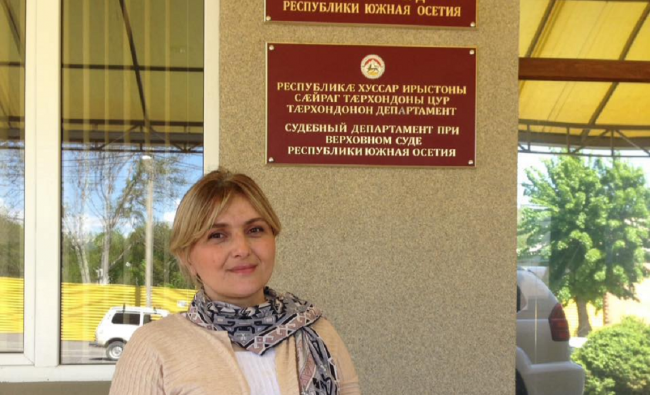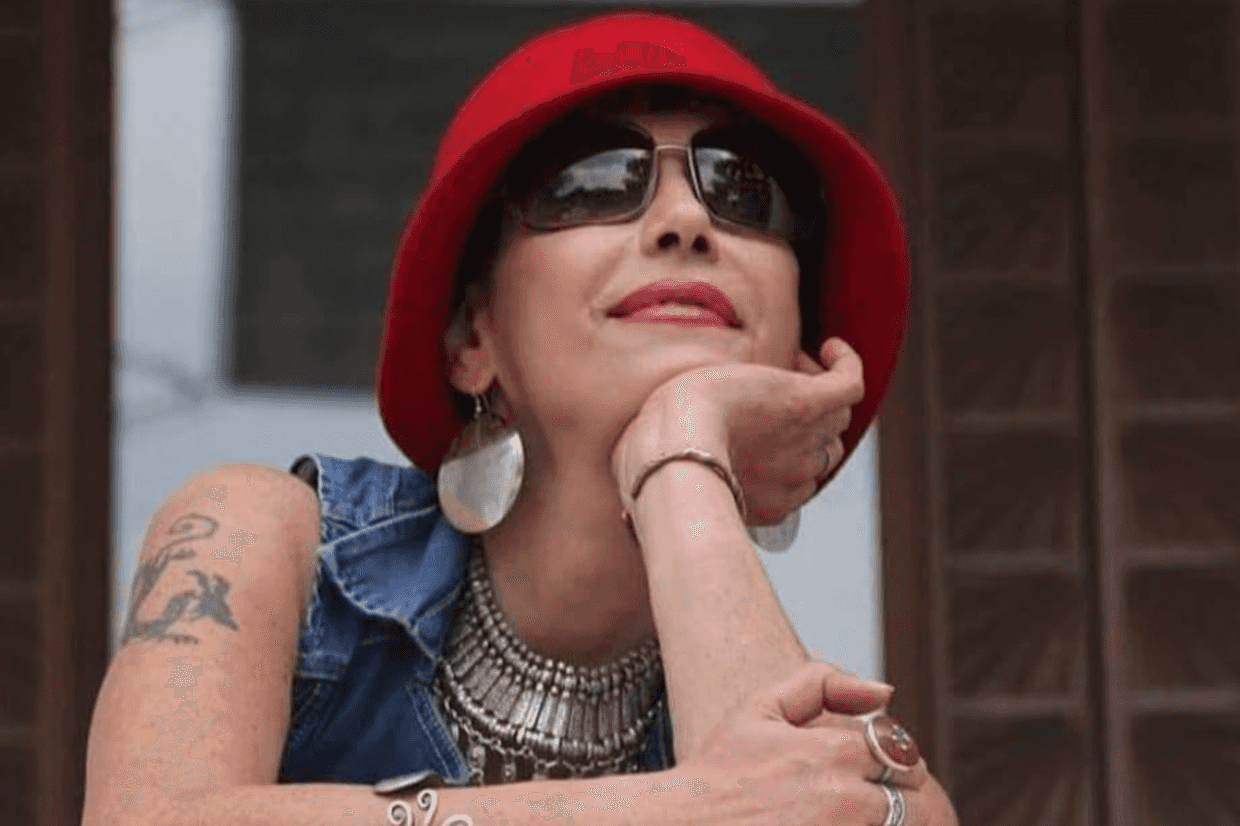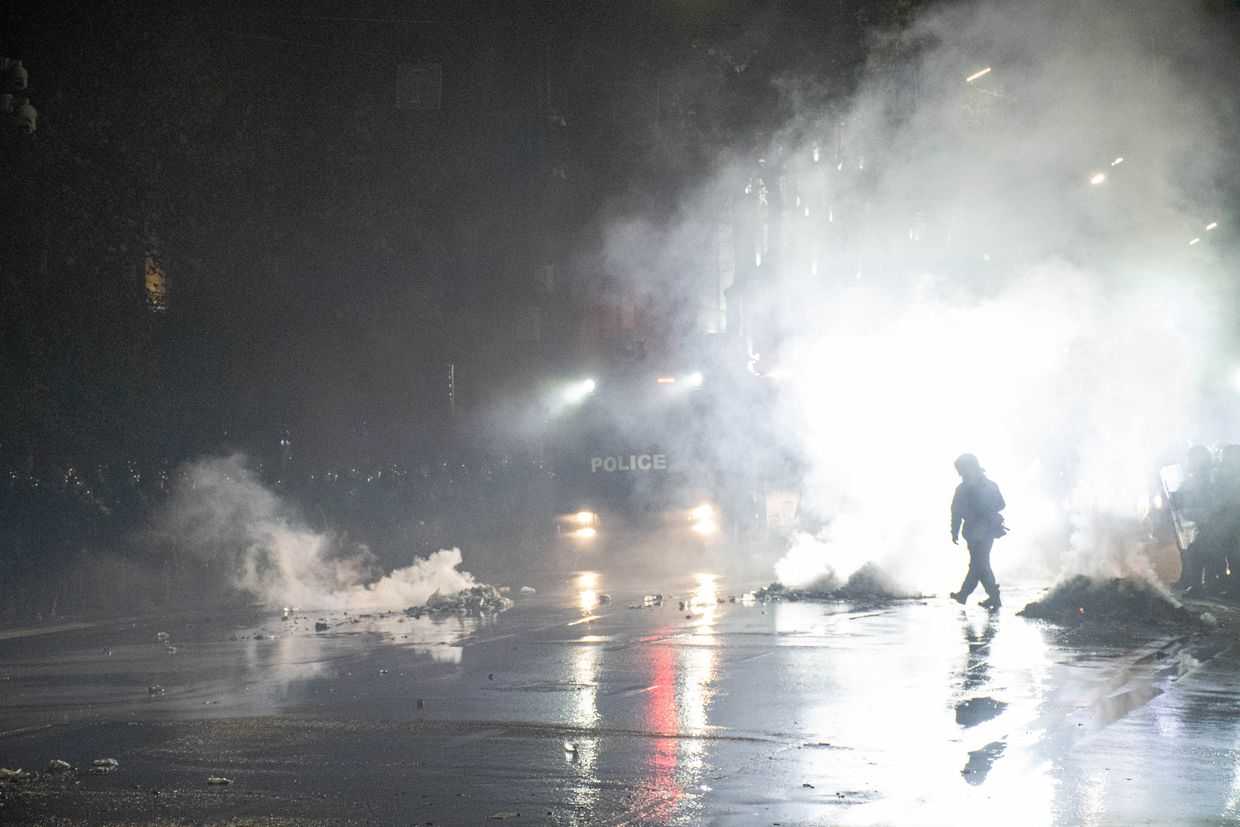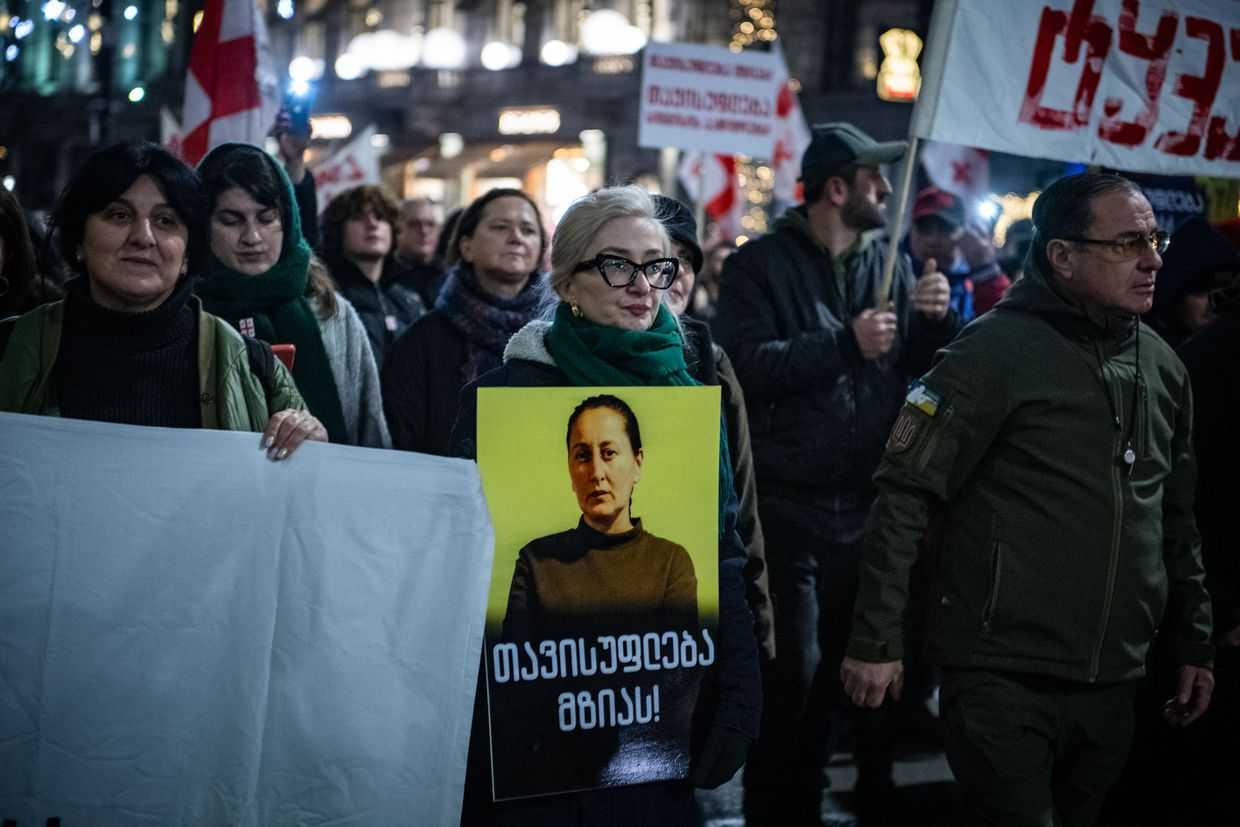Prosecuted South Ossetian journalist accuses Georgian deputy minister of ‘blackmail’


 South Ossetian journalist Tamar Mearakishvili has accused Georgian deputy minister of reconciliation Lasha Darsalia of threatening and blackmailing her. Mearakishvili, who the authorities in South Ossetia are prosecuting for ‘slander and forgery’, has been critical of the Georgian government for failing to do more to help her. Darsalia has denied the allegations, telling OC Media there must be a ‘misunderstanding’.
South Ossetian journalist Tamar Mearakishvili has accused Georgian deputy minister of reconciliation Lasha Darsalia of threatening and blackmailing her. Mearakishvili, who the authorities in South Ossetia are prosecuting for ‘slander and forgery’, has been critical of the Georgian government for failing to do more to help her. Darsalia has denied the allegations, telling OC Media there must be a ‘misunderstanding’.
Mearakishvili went on hunger strike last week to protest what she called the Georgian government’s ‘inaction’. Mearakishvili, who lives in South Ossetia, says her freedom of movement has been curtailed since the local authorities took her documents. Local law enforcement have launched several investigations against her and she may be facing jail. She told OC Media that Georgian officials could draw more international attention to her case, but ‘they haven’t even reached out’.
On Friday, Mearakishvili wrote on Facebook that it was her fifth day of a hunger strike and Georgian officials had not reached out to her. Eventually, she ceased her strike and explained she had started it in order to attract international attention.
‘In February, deputy minister [for reconciliation] Lasha Darsalia called me, probably on your orders’, Mearakishvili wrote addressing Minister for Reconciliation Ketevan Tsikhelashvili. ‘For about an hour he was ordering me around and blackmailing me to stop making critical comments about you […] I haven’t heard a single word of comfort or support’.
She told OC Media that Darsalia blackmailed and threatened her ‘for openly criticising the minister’, but she could not elaborate on details due to her situation in South Ossetia.
‘They haven’t even asked how I am or what the developments in the cases against me are. They say they are voicing my issue during meetings with international society. But I think it’s hard to do that without consulting me or my lawyer. No official person has reached out to me or a family member during these eleven months’, she told OC Media.
Charges in South Ossetia
Mearakishvili was arrested by the authorities in South Ossetia on 16 July 2017 but released shortly after. She is currently facing two charges in a South Ossetian court.
The ruling United Ossetia party filed a complaint against her for slander in August, after which the prosecutor’s office launched a criminal investigation. Investigators reportedly urged her to stop cooperating with Ekho Kavkaza, RFE/RL’s Russian-language service covering Abkhazia and South Ossetia.
In March, she was accused by the local authorities of forgery. Mearakishvili said at the time that she had been under ‘unofficial house arrest’ since August.
[Read more about Mearakishvili’s case on OC Media: South Ossetian court: prosecutors committed ‘procedural violations’ against journalist Mearakishvili]
Mearakishvili told OC Media that local authorities had taken her ID documents and so she could no longer visit Tbilisi to see the doctor.
‘Before my arrest, I had an operation on my jawbone. I need to consult with a doctor at least twice a month. I was arrested 10 days after the operation. I took out the stitches myself because I didn’t have access to doctors. I’m in pain’, said Mearakishvili.
‘Some kind of misunderstanding’
Deputy State Minister for Reconciliation Lasha Darsalia, who Mearakishvili has accused of threatening her told OC Media it was unfortunate if she spoke so of him in such a way. Responding to her accusation that he threatened her, Darsalia said he had not heard such claims and that he will be looking into it as there must have been ‘some kind of misunderstanding’. He said the ministry has ‘full respect and solidarity’ with her and is doing everything to relieve pressure on her.
‘We are using all legitimate options available to help her. First of all, this means we are talking about her with all of our partners in different formats. For instance, we talked with the Geneva International Discussions chairs on 20 June. The minister spoke with them and one of the important issues they discussed was Mearakishvili’s case in light of human rights issues’, said Darsalia.
There were no Geneva talks held in June 2018, but a meeting did take place on 20–21 June 2017. There have been three more meetings since then, according to the OSCE website.
The Geneva talks were launched to address the consequences of the 2008 conflict in Georgia and are chaired by the OSCE, the EU, and the UN.
Darsalia told OC Media Mearakishvili’s case will also be discussed during the next Incident Prevention and Response Mechanism (IPRM) meeting, which take place in Ergneti and are co-facilitated by the OSCE and the European Union Monitoring Mission in Georgia (EUMM).
‘In terms of human rights, the situation is pretty tense [in South Ossetia] and we are taking this responsibly, with solidarity. It’s unfortunate if she feels like we haven’t done anything’, said Darsalia.
Mearakishvili’s name can be found only once on the OSCE website, which documents every IPRM meeting. It suggests her case was discussed during the 80th Incident Prevention and Response Mechanism meeting on 7 September. Since then there have been six more IPRM meetings.
What can Georgian officials do
Giorgi Stepnadze, executive director of local peacebuilding organisation the Civil Forum for Peace, said the Georgian authorities do not have many options in helping Mearakishvili. He said raising the alarm to international society could be the most helpful thing they could do.
Stepnadze told OC Media that officials should bring Mearakishvili’s case to the negotiating table at the Geneva International Discussions.
Stepnadze also said the most effective way to resolve the issue could be addressing it at the IPRM meetings. He said the government should be bringing up these issues at every meeting, but ‘it’s a fact they are not doing so’.
‘It is not enough what the government has done so far, but we don’t have other options either’, said Stepnadze.
For ease of reading, we choose not to use qualifiers such as ‘de facto’, ‘unrecognised’, or ‘partially recognised’ when discussing institutions or political positions within Abkhazia, Nagorno-Karabakh, and South Ossetia. This does not imply a position on their status.









